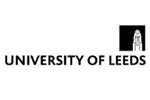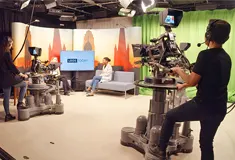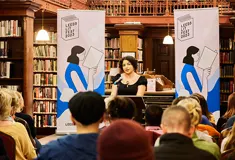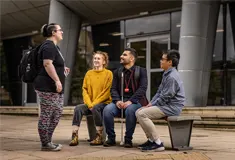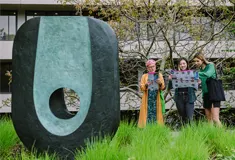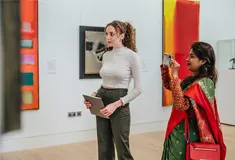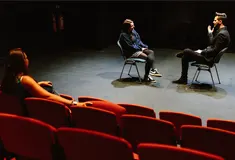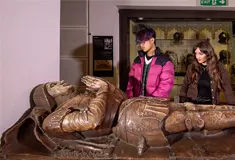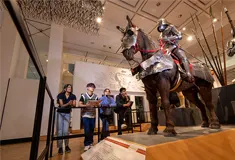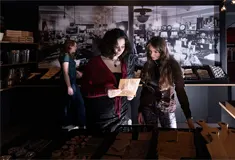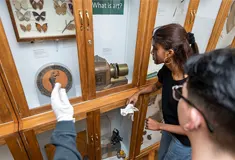About Audiovisual Translation and Localisation, MA - at Faculty of Arts, Humanities and Cultures
The audiovisual market continues to grow as more platforms introduce streaming services to provide motion pictures and entertainment. Furthermore, videos are consistently supplementing or even replacing text in training, marketing content and websites.
Parallelly, the demand for localisation and accessibility also increases. This means that the audiovisual and localisation industry is in need of professionals capable of providing not just subtitling, dubbing, and voice over services in as many foreign languages as possible; but also subtitles for the deaf and the hard of hearing, audio descriptions for blind and partially-sighted people, and live subtitles for people with difficulties accessing the content of a speech.
Working in audiovisual translation and media localisation is an exciting career that requires excellent knowledge of foreign languages, but also a good understanding of intercultural communication, translation and localisation technology, terminology and project management, as well as an excellent knowledge of the industry.
The MA in Audiovisual Translation and Localisation at Leeds will prepare you in all these areas and in your language combination, increasing your confidence and career prospects.
Core modules will introduce you to essential concepts in translation theory, audiovisual translation, accessibility, localisation, project management, and computer-assisted translation. You'll also benefit from hands-on practice in our specialised IT labs throughout the year. You'll work with professionals, using industry-standard software whilst developing specialised skills through individual assignments and team projects with simulated real-life scenarios.
You'll also be able to study modules informed by research taking place at our Centre for Translation Studies on topics such as machine translation, multimodality, corpus linguistics, interpreting, genre analysis, and others.
As a proud member of the international association of translation and interpretation university institutes (CIUTI), the European Language Industry Association (ELIA), the Institute of Translation and Interpreting (ITI), and the Globalization and Localization Association (GALA) the Centre for Translation Studies also maintains privileged collaboration with several UN and EU bodies, as well as national and international companies, institutions and NGOs.
You'll work between English and one or two other languages, including Chinese, French, German, Italian, Japanese, Portuguese, and Spanish.
Specialist facilities
Our specialised translation and audiovisual translation laboratories support all our translation courses, complete with 60 high-spec PCs and a wide range of specialist software for translation, subtitling, respeaking, dubbing, audio-description, localisation, terminology management, and project management.
In addition to translation theory and specialised translation, this course focuses on providing you with training in the different facets of the language services industry. In this context, the core modules provide specialised training in an impressive range of software tools - online and offline - widely used by leading freelancers and translation and subtitling companies, such as Wincaps Q4, ZooSubs, ZooDubs, Spot, Trados Studio, Multiterm, Dragon NaturallySpeaking, Sketch Engine and PerfectIt, among others. Note that access to certain pieces of software is subject to availability.
Learn more about Audiovisual Translation and Localisation, MA - at Faculty of Arts, Humanities and Cultures
Visit course webpage 

